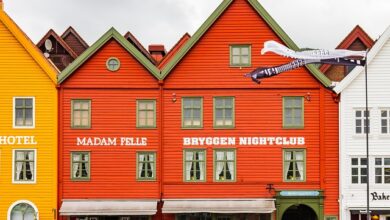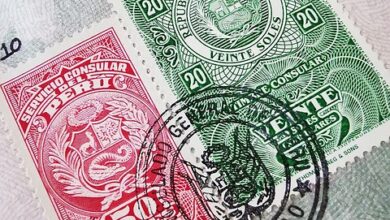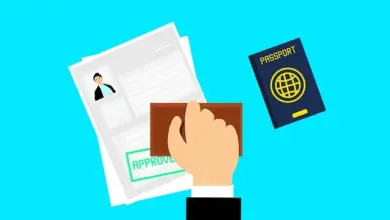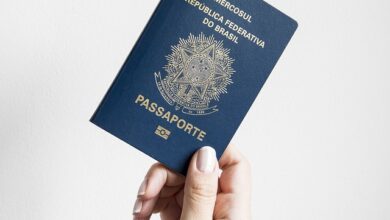How to Apply for a Student Visa in Belgium: A Step-by-Step Guide

Belgium is home to some of Europe’s most prestigious universities and higher education institutions, attracting students from around the globe. If you’re planning to study in Belgium, obtaining a student visa (also known as a long-stay visa or Type D visa) is an essential step if you’re a non-EU/EEA/Swiss national. This guide will walk you through the application process, required documents, and important considerations to ensure a smooth experience.
1. Determine Your Eligibility
Before applying for a student visa, confirm that you meet the following criteria:
- You have been accepted into a recognized educational institution in Belgium.
- Your course of study lasts longer than 90 days (shorter stays may only require a Schengen visa).
- You are a citizen of a country outside the EU/EEA or Switzerland.
- You can prove sufficient financial means to support yourself during your stay.
- You have health insurance coverage valid in Belgium.
2. Types of Student Visas
There are two main types of visas for international students in Belgium:
a. Long-Stay Visa (Type D Visa)
- Required for courses lasting more than 90 days.
- Allows you to enter Belgium and apply for a residence permit upon arrival.
b. Short-Stay Schengen Visa (Type C Visa)
- For programs or exchanges lasting less than 90 days.
- Does not require a residence permit but has limitations on travel and work.
Most students will need the Type D Visa , as academic programs typically exceed three months.
3. Gather Required Documents
The Belgian consulate or embassy will require several documents to process your visa application. Ensure all documents are translated into French, Dutch, or German (depending on the region of your institution) and certified if necessary. Common requirements include:
- Completed Visa Application Form :
- Available on the website of the Belgian embassy or consulate in your country.
- Valid Passport :
- Must be valid for at least 12 months beyond your intended stay.
- Include copies of previous visas if applicable.
- Letter of Acceptance :
- Official proof of enrollment from your Belgian university or institution.
- Proof of Financial Means :
- Demonstrate that you can cover tuition fees and living expenses. Options include:
- Bank statements showing sufficient funds (approximately €850–€1,000 per month).
- Scholarship award letters.
- Sponsorship letters with supporting financial documents.
- Demonstrate that you can cover tuition fees and living expenses. Options include:
- Health Insurance :
- Comprehensive health insurance covering medical emergencies in Belgium.
- Proof of Accommodation :
- Rental agreement, dormitory confirmation, or other evidence of housing arrangements.
- Passport-Sized Photos :
- Meet biometric photo specifications (usually two recent photos).
- Criminal Record Check :
- Some embassies may request a clean criminal record certificate.
- Payment of Visa Fee :
- Fees vary by nationality but generally range from €180 to €250.
- Travel Itinerary :
- Round-trip flight reservation or detailed travel plans.
4. Submit Your Application
Once you’ve gathered all required documents, follow these steps:
- Book an Appointment :
- Schedule an appointment at the Belgian embassy or consulate in your home country. Processing times can take 15–60 days, so apply well in advance (at least 3 months before departure).
- Attend the Interview :
- During your appointment, you may undergo a brief interview to discuss your study plans, financial situation, and intentions after graduation.
- Pay the Fee :
- Pay the visa processing fee at the time of submission. Keep the receipt as proof of payment.
- Wait for Approval :
- After submitting your application, wait for the decision. You may be contacted for additional information if needed.
5. Obtain a Residence Permit Upon Arrival
Once you arrive in Belgium, your student visa allows you to stay temporarily while you complete the residence permit process. Here’s what to expect:
- Register at the Local Town Hall :
- Within 8 days of arriving, visit the municipal administration office (commune) in your city to register your address.
- Apply for a Residence Permit :
- Submit an application for a residence permit (titre de séjour) at the local immigration office (Office des Étrangers or Vreemdelingenkantoor).
- Provide updated documents, including proof of enrollment, financial means, and health insurance.
- Biometric Data Collection :
- Attend an appointment to provide fingerprints and photographs for your residence card.
- Receive Your Permit :
- Once approved, you’ll receive a residence permit valid for the duration of your studies. Renewals may be required annually.
6. Additional Considerations
Here are some important tips and factors to keep in mind:
Language Requirements
- Depending on your program, you may need to demonstrate proficiency in French, Dutch, or English. Check your university’s admission requirements.
Tuition Fees
- Tuition fees vary based on your nationality, institution, and level of study. EU/EEA students pay lower fees compared to non-EU students.
Work Opportunities
- As a student visa holder, you’re allowed to work up to 20 hours per week during the academic year and full-time during holidays. However, securing employment may depend on language skills and availability.
Healthcare Access
- With valid health insurance, you’ll have access to Belgium’s high-quality public healthcare system. Register with a mutualité (health fund) for subsidized services.
Post-Study Options
- Graduates may qualify for a one-year extension of their residence permit to seek employment or start a business in Belgium.
7. Common Mistakes to Avoid
To ensure a successful application, avoid these common pitfalls:
- Late Applications : Start early to account for processing delays.
- Incomplete Documentation : Double-check that all forms and supporting materials are accurate and complete.
- Insufficient Funds : Ensure your financial proof meets the minimum requirements.
- Ignoring Regional Differences : Be aware of linguistic and administrative variations between Flanders, Wallonia, and Brussels.



